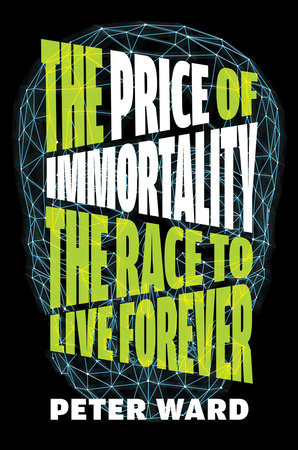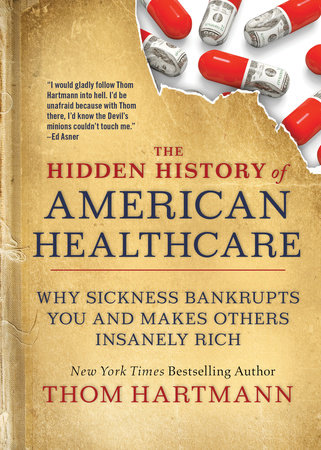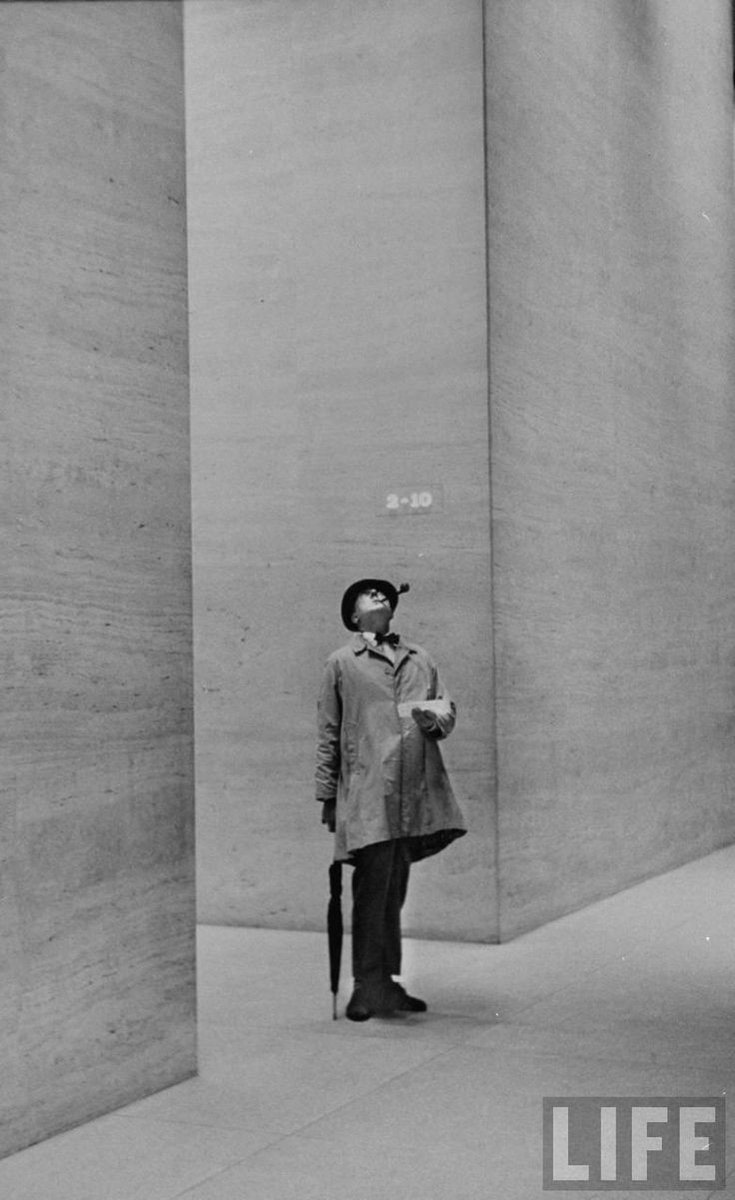Drug Truths: Dispelling the Myths About Pharma R & D
This book answers the questions about the process and costs of pharmaceutical R & D in a compelling narrative focused on the discovery and development of important new medicines. It gives an insider's account of the pharmaceutical industry drug discovery process, the very real costs of misperceptions about the industry, the high stakes--both economic and scientific--of developing drugs, the triumphs that come when new compounds reach the market and save lives, and the despair that follows when new compounds fail. In the book, John LaMattina, former president of Pfizer Global Research and Development, weaves themes critical to a vital drug discovery environment in the context. This is a story that Dr. LaMattina is uniquely qualified to tell.
TABLE OF CONTENTS
PART I A MATTER OF THE HEART 1
CHAPTER 1 CHOLESTEROL DRUGS ARE UNNECESSARY 3
CHAPTER 2 INDUSTRY IS MORE INTERESTED IN "ME-TOO" DRUGS THAN IN INNOVATION 13
CHAPTER 3 IT TAKES INDUSTRY TOO LONG TO DISCOVER NEW DRUGS 23
PART II THE ROLE OF PHARMACEUTICAL R&D IN HEALTH CARE 39
CHAPTER 4 DRUGS ARE DISCOVERED BY ACADEMIA 41
CHAPTER 5 NEW MEDICINES ADD COSTS BUT LITTLE BENEFIT 50
CHAPTER 6 BIG PHARMA HAS FAILED AND SHOULD LEARN FROM BIOTECH SUCCESS 59
PART III THE PROFIT MOTIVE 69
CHAPTER 7 THE INDUSTRY INVENTS DISEASES 71
CHAPTER 8 NEW DRUGS ARE LESS SAFE THAN TRADITIONAL MEDICINES 79
CHAPTER 9 INDUSTRY SPENDS MORE ON ADVERTISING THAN ON R&D 91
CHAPTER 10 INDUSTRY DOES NOT CARE ABOUT DISEASES OF THE DEVELOPING WORLD 100
PART IV THE FUTURE 109
CHAPTER 11 BIG PHARMA'S DAY HAS PASSED 111
CHAPTER 12 FINAL REFLECTIONS 122
Aquí teniu un resum detallat del llibre "Drug Truths: Dispelling the Myths About Pharma R&D" de John L. LaMattina.
El llibre, escrit per John L. LaMattina, Ph.D., i publicat per John Wiley & Sons, Inc. el 2009 (amb copyright del 2008), té com a objectiu dissipar els mites sobre la R&D farmacèutica. Intenta respondre preguntes com quin valor aporten els nous medicaments a la societat, d'on provenen, quina innovació aporta la "Big Pharma" i com s'avaluen els riscos i beneficis dels medicaments. El llibre busca oferir un relat intern del procés de descobriment de fàrmacs a la indústria, destacant els costos de les percepcions errònies, els alts riscos (econòmics i científics), els èxits en el llançament de nous compostos que salven vides i la decepció quan fallen. LaMattina espera que el llibre ampliï les perspectives dels lectors sobre la importància de la feina en R&D farmacèutica.
El llibre s'estructura en quatre parts principals:
- PART I: Qüestió del cor
- PART II: El paper de la R&D farmacèutica en l'atenció sanitària
- PART III: El motiu del lucre
- PART IV: El futur
Part I: Qüestió del cor
Aquesta part se centra en les contribucions de la R&D farmacèutica respecte al colesterol i les malalties cardíaques. S'esmenta la hipòtesi científica intrigant que la infecció per Chlamydia pneumoniae podria tenir un paper en el desenvolupament de malalties de les artèries coronàries, tot i que estudis posteriors no van confirmar el benefici dels antibiòtics per a la prevenció secundària d'esdeveniments cardíacs.
-
Capítol 1: Els medicaments per al colesterol són innecessaris
Aquest capítol refuta la idea que els medicaments per al colesterol no són necessaris. Es descriu l'estudi LRC-CPPT, que va demostrar per primera vegada que la reducció del colesterol total i LDL amb colestiramina tenia un impacte directe en la reducció de malalties cardíaques. Es relata la descoberta de la compactina per Akira Endo, un inhibidor de l'enzim HMG-CoA reductasa, que va obrir la via a les estatines. Es discuteix l'assaig ENHANCE amb Vytorin (ezetimibe més simvastatina) en pacients amb hipercolesterolèmia familiar heterozigòtica (HeFH), que va mostrar una major reducció del colesterol LDL amb la combinació però cap diferència en l'aterosclerosi de l'artèria caròtida després de 2 anys, malgrat la reducció del LDL. Aquest resultat va generar especulació i articles de premsa que qüestionaven el valor dels medicaments per al colesterol. El llibre conclou que els medicaments per al colesterol són necessaris per reduir les malalties cardiovasculars.
-
Capítol 2: La indústria està més interessada en fàrmacs "jo també" que en la innovació
Aquest capítol explora el mite dels fàrmacs "me-too" o de seguiment. Un anàlisi va identificar 72 noves classes terapèutiques i 235 fàrmacs de seguiment aprovats als EUA entre 1960 i 2003. El llibre utilitza la història de Lipitor com a exemple d'un fàrmac de seguiment (la cinquena estatina al mercat) que va resultar ser molt important. Es detalla com Pfizer, malgrat un pressupost de R&D modest als anys 80, va invertir en recerca cardiovascular, inicialment centrada en la hipertensió, que va portar a Norvasc i Cardura. Quan van desenvolupar atorvastatin (Lipitor), es va demostrar que tenia una capacitat de reducció del LDL especialment alta. Es destaca la importància dels estudis de Fase 4 (post-aprovació), que sovint van més enllà dels requisits de la FDA per demostrar plenament el valor d'un medicament. Els estudis de Fase 4 amb Lipitor, com TNT, CARDS i ASCOT-LLA, que van implicar desenes de milers de pacients i una inversió de més de 800 milions de dòlars per part de Pfizer, van canviar la pràctica mèdica, demostrant els beneficis de la reducció intensiva del LDL en diverses poblacions (malalts coronaris estables, diabètics tipus 2, pacients hipertensos amb colesterol moderat). Es suggereix que Lipitor pot tenir efectes pleiotròpics addicionals a la simple reducció de lípids. La història de Lipitor il·lustra que un fàrmac de seguiment pot ser molt important.
-
Capítol 3: La indústria triga massa temps a descobrir nous fàrmacs
Aquest capítol aborda la percepció que el procés de descoberta de fàrmacs és massa lent. Es descriu breument el procés que culmina en la presentació d'una New Drug Application (NDA) a les agències reguladores, que conté una gran quantitat d'informació i sovint requereix aclariments o estudis addicionals. El capítol aprofundeix en la història del desenvolupament de torcetrapib, un inhibidor de la proteïna de transferència d'èsters de colesterol (CETP), basat en la hipòtesi que l'augment del colesterol HDL podria ser anti-aterogènic. El projecte va començar el 1991 a Pfizer i va ser extremadament desafiant trobar un petit molècula capaç d'inhibir aquesta gran proteïna. Es van tamisar centenars de milers de molècules i sintetitzar moltes altres, sense èxit inicialment. Un canvi simple (dissoldre compostos en oli d'oliva) va permetre provar-los en animals i demostrar augments sense precedents del colesterol HDL. El desenvolupament d'una formulació viable per a ús clínic va ser un repte important, resolt amb la tècnica de dispersió assecada per aspersió (SDD), una novetat en la indústria en aquell moment. Els primers estudis en humans (Fase 1/2) van mostrar efectes profunds sobre els perfils lipídics, augmentant el HDL i reduint el LDL. L'interès en torcetrapib va ser alt, sent vist com potencialment revolucionari. El programa de Fase 3 de torcetrapib/atorvastatin (T/A) va ser el més car mai realitzat a Pfizer i potser a tota la indústria, amb un cost esperat de 800 milions de dòlars. Malgrat els resultats positius sobre els lípids, la FDA requeria estudis d'esdeveniments cardiovasculars a llarg termini (estudis d'outcome), ja que el HDL no era un marcador subrogat establert per a malalties cardíaques de la mateixa manera que el LDL. El programa de Fase 3 incloïa estudis d'imatge (ecografia carotídia i IVUS coronària) i un estudi massiu de morbiditat i mortalitat, ILLUMINATE, amb més de 15.000 pacients seguits durant una mitjana de 4,5 anys. No obstant això, el novembre de 2006, l'assaig ILLUMINATE es va terminar prematurament perquè un consell de monitorització de dades (DSMB) va observar un desequilibri en la mortalitat per totes les causes, més alta en el grup T/A. Aquesta història demostra que el descobriment i desenvolupament de nous medicaments és un procés llarg i costós (centenars de milions de dòlars) que pot ser frustrant i decebedor, fins i tot en etapes avançades.
Part II: El paper de la R&D farmacèutica en l'atenció sanitària
Aquesta part explora la relació entre la recerca acadèmica i la indústria farmacèutica.
-
Capítol 4: Els medicaments són descoberts per l'acadèmia
El capítol distingeix el paper de la recerca bàsica realitzada principalment a l'acadèmia i finançada per organismes com el NIH, del paper de la indústria en la descoberta i desenvolupament de nous medicaments. Es presenta l'exemple de Xalatan, un medicament per al glaucoma. La recerca bàsica finançada pel NIH realitzada pel professor Laszlo Bito a la Universitat de Columbia va identificar el potencial de les prostaglandines en dosis baixes per reduir la pressió intraocular. No obstant això, va ser Pharmacia qui va dur a terme el "dur treball del procés de desenvolupament de fàrmacs", incloent la cerca de compostos específics, proves en animals i humans (seguretat i eficàcia), presentació de dades als reguladors i, finalment, l'introducció del producte després de 12 anys i centenars de milions de dòlars. S'il·lustra una col·laboració exitosa acadèmia-indústria amb la història del descobriment d'un inhibidor de la JAK-3 (CP-690,550) per a malalties autoimmunes. La recerca sobre la cadena gamma del receptor d'interleucina 2 (IL-2Rγ) i la mutació JAK3 es va dur a terme a l'acadèmia (NIH, St. Jude Children's Research Hospital, Hospital Infantil de Boston, etc.). Aquesta recerca va proporcionar la base teòrica per desenvolupar un inhibidor de JAK-3. Pfizer va desenvolupar el compost CP-690,550 i va col·laborar amb grups acadèmics (com l'equip del Dr. Dominic Borie a Stanford) per provar-lo en models animals rigorosos de trasplantament de ronyó. CP-690,550 (posteriorment anomenat tofacitinib) es va mostrar prometedor també per a la psoriasi i l'artritis reumatoide.
-
Capítol 5: Els nous medicaments afegeixen costos però poc benefici
Aquest capítol s'oposa a la noció que els nous medicaments només augmenten els costos sense gaire benefici. Presenta exemples que demostren el valor de l'accés als medicaments:
- Limitar la cobertura de medicaments per a pacients amb malalties mentals cròniques (esquizofrènia) a Medicaid va augmentar l'ús de serveis d'atenció de salut mental aguts i els costos per al govern, a més d'augmentar el patiment dels pacients.
- El Projecte Asheville, que va oferir accés gratuït a medicaments receptats i serveis de gestió de cures per a diabètics, va demostrar que la provisió d'atenció integral per a aquests pacients va reduir els costos generals alhora que millorava la seva salut.
- La introducció de la teràpia antiretroviral altament activa (HAART) per al VIH va conduir a una disminució espectacular dels costos d'hospitalització i un augment significatiu de l'esperança de vida per als pacients infectats pel VIH als EUA [105, esmentat a la llista de referències].
També es detalla el desenvolupament de vareniclina (Chantix/Champix) com a ajut per deixar de fumar. Va ser aprovat amb estatus de revisió prioritària per la FDA en 6 mesos. El llibre assenyala que la seguretat d'un medicament es monitoritza al llarg de tota la seva vida i que, tot i que els efectes secundaris rars poden aparèixer després que milions de pacients hagin estat tractats, el sistema funciona per comunicar aquests riscos.
-
Capítol 6: La Big Pharma ha fracassat i hauria d'aprendre de l'èxit de la biotecnologia
Aquest capítol aborda el mite que les grans farmacèutiques han fracassat en innovació en comparació amb les empreses de biotecnologia. Utilitza la història del descobriment de Selzentry (maraviroc) per al VIH a Pfizer com a exemple d'èxit industrial. El fàrmac actua bloquejant el receptor CCR-5, imitant una mutació genètica coneguda per conferir resistència al VIH. Els estudis clínics de Fase 2 van mostrar una reducció significativa de la càrrega viral en pacients. S'inclou un relat personal d'un biòleg de Pfizer que destaca l'impacte emocional i motivador de veure pacients beneficiar-se dels nous tractaments per al VIH. El llibre reconeix que hi ha un desig d'accelerar l'aprovació de medicaments importants, però les exigències de dades de seguretat per a les NDAs són més altes que mai, el que implica estudis més grans i llargs, i per tant més temps i cost. Això no significa que la revisió sigui menys rigorosa.
Part III: El motiu del lucre
Aquesta part examina diverses crítiques relacionades amb els motius econòmics de la indústria.
-
Capítol 8: Els nous fàrmacs són menys segurs que les medicines tradicionals
El capítol refuta la idea que els medicaments nous són intrínsecament més arriscats que els tradicionals o els de venda lliure (OTC). Es citen exemples dels perills de l'ús indegut de medicaments OTC, com els productes per a la tos i el refredat en nens petits. Es destaca que l'acetaminofèn i l'aspirina, medicaments OTC comuns, poden causar reaccions tòxiques greus, incloent sagnat intern en el cas de l'aspirina, que probablement impediria el seu desenvolupament si es descobrissin avui. Es presenta la història del desenvolupament dels inhibidors selectius de la COX-2, com Celebrex, que es van buscar com a alternatives més segures als AINEs tradicionals, lliures de la toxicitat gastrointestinal. Searle va invertir molt en aquest programa. La NDA de Celebrex va ser particularment extensa, incloent dades de gairebé 15.000 pacients, molt més que les NDAs d'AINEs anteriors. Celebrex també va ser estudiat per a la prevenció del càncer de còlon en pacients amb poliposi adenomatosa familiar (FAP). No obstant això, després de la retirada voluntària de Vioxx per part de Merck a causa d'un augment del risc cardiovascular (esdeveniments trombòtics), estudis amb Celebrex en dosis altes per a la prevenció del càncer també van mostrar un augment del risc cardiovascular. Una reunió d'un comitè assessor de la FDA va concloure que el risc cardiovascular podria ser un efecte de classe per a tots els AINEs, tant selectius de COX-2 com tradicionals en dosis de recepta. Com a resultat, es van afegir advertències de "caixa negra" a les etiquetes de Celebrex i de tots els AINEs tradicionals per al risc cardiovascular. La història conclou amb relats personals sobre l'impacte positiu de Celebrex en pacients, malgrat els riscos.
-
Capítol 9: La indústria gasta més en publicitat que en R&D
Aquest capítol compara la despesa promocional amb la inversió en R&D. També discuteix la publicitat directa al consumidor (DTC) de medicaments receptats, assenyalant que la FDA revisa aquesta publicitat per assegurar que no sigui enganyosa. S'utilitza l'exemple del sildenafil, originalment investigat per a la hipertensió, que va resultar efectiu per a la disfunció erèctil (Venut com Viagra). Un estudi posterior va demostrar que el sildenafil també era efectiu per a la hipertensió arterial pulmonar (PAH), millorant la capacitat d'exercici i la funció, i es ven amb un nom i format diferents (Revatio) per evitar confusions. Això il·lustra com la recerca pot portar a noves aplicacions inesperades.
-
Capítol 10: La indústria no es preocupa per les malalties del món en desenvolupament
El capítol refuta el mite que la indústria farmacèutica ignora les malalties que afecten els països en desenvolupament. Es destaca que les empreses comparteixen experiència i donen medicaments. L'exemple principal és el treball de Merck per erradicar l'oncocercosi (ceguesa dels rius), mitjançant la donació de Mectizan (ivermectin) a tots els que el necessiten des de 1987. Un altre exemple és el desenvolupament de Zithromax (azithromycin) per Pfizer. Tot i que les proves inicials no van ser totalment concloents, la persistència d'un científic i la demostració de l'eficàcia oral van salvar el projecte. Zithromax s'ha utilitzat en programes massius de tractament per erradicar el tracoma, la principal causa de ceguesa infecciosa evitable, amb una dosi única anual. Es mostra l'eficàcia de dues dosis anuals en un estudi de Tanzània. Aquests exemples demostren el compromís de la indústria amb les malalties del món en desenvolupament.
Part IV: El futur
Aquesta part contempla el futur de la indústria i la R&D.
-
Capítol 11: El dia de la Big Pharma ha passat
Aquest capítol aborda la idea que les grans farmacèutiques ja no són innovadores. Es discuteix la recerca en nous fàrmacs per al càncer, incloent les teràpies dirigides i la immunoteràpia. Es mencionen exemples com els inhibidors de l'angiogènesi (Avastin, Sutent), que bloquegen el subministrament de sang als tumors. Es destaca la recerca en immunoteràpia, com el bloqueig de CTLA-4 amb anticossos (tremelimumab, ipilimumab), dissenyats per reactivar el sistema immunitari contra les cèl·lules tumorals. Es presenta un exemple d'un pacient amb melanoma metastàtic que va respondre bé al tremelimumab. S'assenyala que la immunoteràpia per al càncer encara és en etapes inicials, però hi ha resultats prometedors. El llibre també assenyala que la disminució de noves sol·licituds de fàrmacs (NDAs) en els últims anys es deu, en part, a l'augment de les exigències de dades de seguretat per part dels reguladors, cosa que allarga els estudis de Fase 3.
-
Capítol 12: Reflexions finals
El capítol final reflexiona sobre els repetits fracassos en la recerca de fàrmacs (més del 90% dels compostos que entren en desenvolupament no són aprovats) i què motiva els científics. Un científic pot passar una carrera sencera sense descobrir un nou medicament. S'inclou un commovedor correu electrònic d'un col·lega de Pfizer el pare del qual es va beneficiar d'un assaig clínic amb tremelimumab per al melanoma, destacant l'impacte personal de la feina i la importància de recordar que "el pacient està esperant". Aquesta perspectiva ajuda a entendre la motivació darrere dels desafiaments de la R&D farmacèutica.
En conjunt, el llibre "Drug Truths" utilitza nombrosos exemples i històries detallades del procés de R&D, sovint extretes de l'experiència de l'autor a Pfizer, per desmuntar les percepcions públiques negatives sobre la indústria farmacèutica i il·lustrar la complexitat, el cost, els riscos i, finalment, el valor i l'impacte humà de la descoberta de nous medicaments.











